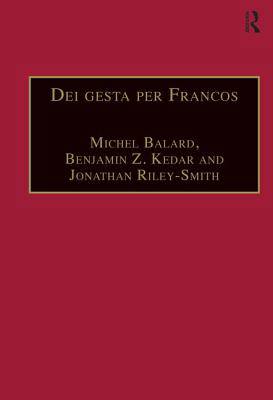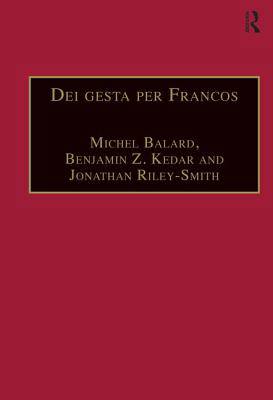
- Afhalen na 1 uur in een winkel met voorraad
- Gratis thuislevering in België vanaf € 30
- Ruim aanbod met 7 miljoen producten
- Afhalen na 1 uur in een winkel met voorraad
- Gratis thuislevering in België vanaf € 30
- Ruim aanbod met 7 miljoen producten
Zoeken
Omschrijving
Professor Jean Richard is the doyen of crusade historians. Although also well-known as one of the most distinguished historians of Burgundy, he has through publications which have been appearing for over half a century established himself as the greatest living scholar working on crusading and the Latin East. His book on twelfth-century Tripoli, published in 1945, is still the standard work on the county. In the 1950s he, and Joshua Prawer, provided a revolutionary approach towards the constitution and institutions of the kingdom of Jerusalem. He went on to pave the way for an entirely new understanding of the kingdom of Cyprus. In the 1960s he was one of a few historians who were sign-posting a more empathetic view of the ideology of crusading and the motivation of crusaders, and he developed his ideas further in recent monographs on Saint Louis and on the crusades in general. His work on Catholic missions to Asia and the role of the papacy in those enterprises is generally regarded as setting standards which few can approach. To celebrate his eightieth birthday thirty-nine colleagues have contributed articles in fields which themselves illustrate Professor Richard's breadth of interest: the crusades, the military orders, and the Latin settlements on the Levantine mainland and the island of Cyprus.
Specificaties
Betrokkenen
- Auteur(s):
- Uitgeverij:
Inhoud
- Aantal bladzijden:
- 464
- Taal:
- Engels
Eigenschappen
- Productcode (EAN):
- 9780754604075
- Verschijningsdatum:
- 20/03/2001
- Uitvoering:
- Hardcover
- Formaat:
- Genaaid
- Afmetingen:
- 156 mm x 233 mm
- Gewicht:
- 452 g

Alleen bij Standaard Boekhandel
+ 391 punten op je klantenkaart van Standaard Boekhandel
Beoordelingen
We publiceren alleen reviews die voldoen aan de voorwaarden voor reviews. Bekijk onze voorwaarden voor reviews.












